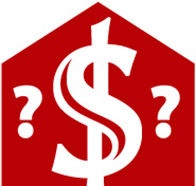SELLER'S RESOURCE »

If you have thought about selling your home recently, likely your interest has been peaked from the commercials from companies such as Zillow and Opendoor that advertise buying your home with all cash and at “fair market value.” These companies have been most recently given the term, iBuyers. The truth is that iBuyer programs are not new and these big corporations like Zillow and Opendoor have been around for over 6 years. The idea is that they will give you an all cash offer for your home, not require you to make any repairs on the property, allow you to pick your sale date (within their restrictions), and you do not have to pay a traditional real estate commission. It’s no wonder that you’ve listened to these commercials closely if you’ve thought about selling your home; it sounds almost too good to be true. Perhaps, that’s because it is. Before we determine if it’s a good route for you to take when selling your home, let's look at the process closer.
According to information from zillow.com, here is how their home buying process works. You request an offer by filling out an application online and within 1 - 3 days a Zillow Advisor will follow up with you. At this time, you will be given an offer for your home based on their famous Zestimate, which takes into account comparable homes close by that have recently sold. Upon receiving your offer, if you choose to proceed they will visit the property and do an in-home evaluation. This in-home evaluation is used to determine the exact condition of your home and if there are any repairs that would need to be made before Zillow could turn around and resell the property on the open market. After Zillow understands the condition of your home and what repairs might need to be done, you’ll receive a revised offer representing their findings. Now, let's take a look at the breakdown of Zillow’s Offer.
 Using Zillow’s website as a reference, they state that selling costs, which they compare to the typical commission that a realtor would make, are the same - both being 6%. Zillow defines selling costs as the “transaction costs of buying your home, and the prep cost of listing and selling your home after you move out. This includes the buyer’s agent commission.” They also state that their closing costs are the same as the traditional 1 - 2% that you have when using a realtor in a typical transaction. With this comparison, the only advantage of using Zillow would be the option of potentially picking your Closing Date, not having the stress of prepping your home for sale and not having showings, but at what cost?
Using Zillow’s website as a reference, they state that selling costs, which they compare to the typical commission that a realtor would make, are the same - both being 6%. Zillow defines selling costs as the “transaction costs of buying your home, and the prep cost of listing and selling your home after you move out. This includes the buyer’s agent commission.” They also state that their closing costs are the same as the traditional 1 - 2% that you have when using a realtor in a typical transaction. With this comparison, the only advantage of using Zillow would be the option of potentially picking your Closing Date, not having the stress of prepping your home for sale and not having showings, but at what cost?
When we studied Zillow’s concept, we found there were three major financial differences for the Seller when selling to an iBuyer versus the traditional sale on the open market. First, as was already mentioned, Zillow will charge you for repairs that need to be completed in the format of a price reduction to the price they will list you home for to match their estimated repairs. However, in a traditional sale with TK Homes, all these repairs may not actually need to be completed. Part of what we help our Sellers do is to determine what repair items might need to be addressed before going on the market and then help negotiate our client through the inspection phase. This means that it is very possible that you are losing money because some of the repairs Zillow will make you pay for, in the way of a price reduction, may not actually need to be completed. Also, you have to go with whatever Zillow charges for repairs regardless of price, so you may be losing money because of this as well.
The second area that will cost you more money is the actual sales price. The iBuyer’s business model is to purchase your property, as-is and do as little if any work to them before putting them right back on the market. When they hit the market, they are listed for, in some cases, $15,000 or more than what they just paid you for the property. Since they are purchasing from you with all cash, there is no appraisal or way for you to determine if you are truly getting fair market value. In fact, in our experience, you’d get a much higher sales price on the open market, especially with how strong the Denver Area market is today.
Third is the Zillow Service Charge, which according to Zillow’s website can range from 1.5% to 9% of the sales price. This extra service charge is probably one of the biggest expenses that a home seller should never have to pay. According to Zillow’s own website, the fee goes towards, “… the cost of home ownership before resale including taxes, maintenance, and utilities, as well as the potential risks associated with the sale.” What this means is that this fee is passing the risk of Zillow owning the home onto the Seller they just purchased it from, yet Zillow or any iBuyer reaps all of the reward and return on the investment when they resell the property. We promise you that they are not giving the end buyer of the property any type of money to help reduce their risk of ownership after closing. After all, when you buy a property, you’re buying all of the risks as well as the upswing.
To sum things up, on the surface, iBuyer programs seem to be all benefit with no down side. You get the money that you were promised, and you are on your way. However, when you dig deeper, you realize that not only are there extra costs for repairs and the service fee, but you can’t negotiate a price for your home. You will most probably lose even more money by not putting your home on the market.
Before going down the iBuyer path, talk with a TK Homes agent to see all of the benefits we have to offer. We put our clients first, and our goal is to sell your home and net you the highest amount of money at the closing table, within the shortest amount of time and with the least amount of hassle.
** View the image in the article. This is a copy of an ACTUAL Zillow Offer received on one of our Seller’s homes. You can see that with TK Homes, they were able to net an additional $23,922 more for their property than if they would have sold to Zillow. Your home is your largest investment—don’t lose money on it when it comes to selling and let someone else enjoy your return on investment.









